

A driving force to pave the way for the future
He is active in various genres both at home and abroad.Another feature of Otemae University is that it has a faculty team with a wealth of experience and knowledge.
Our special curriculum, taught by faculty with a global perspective,We will develop the talent needed for the next generation.
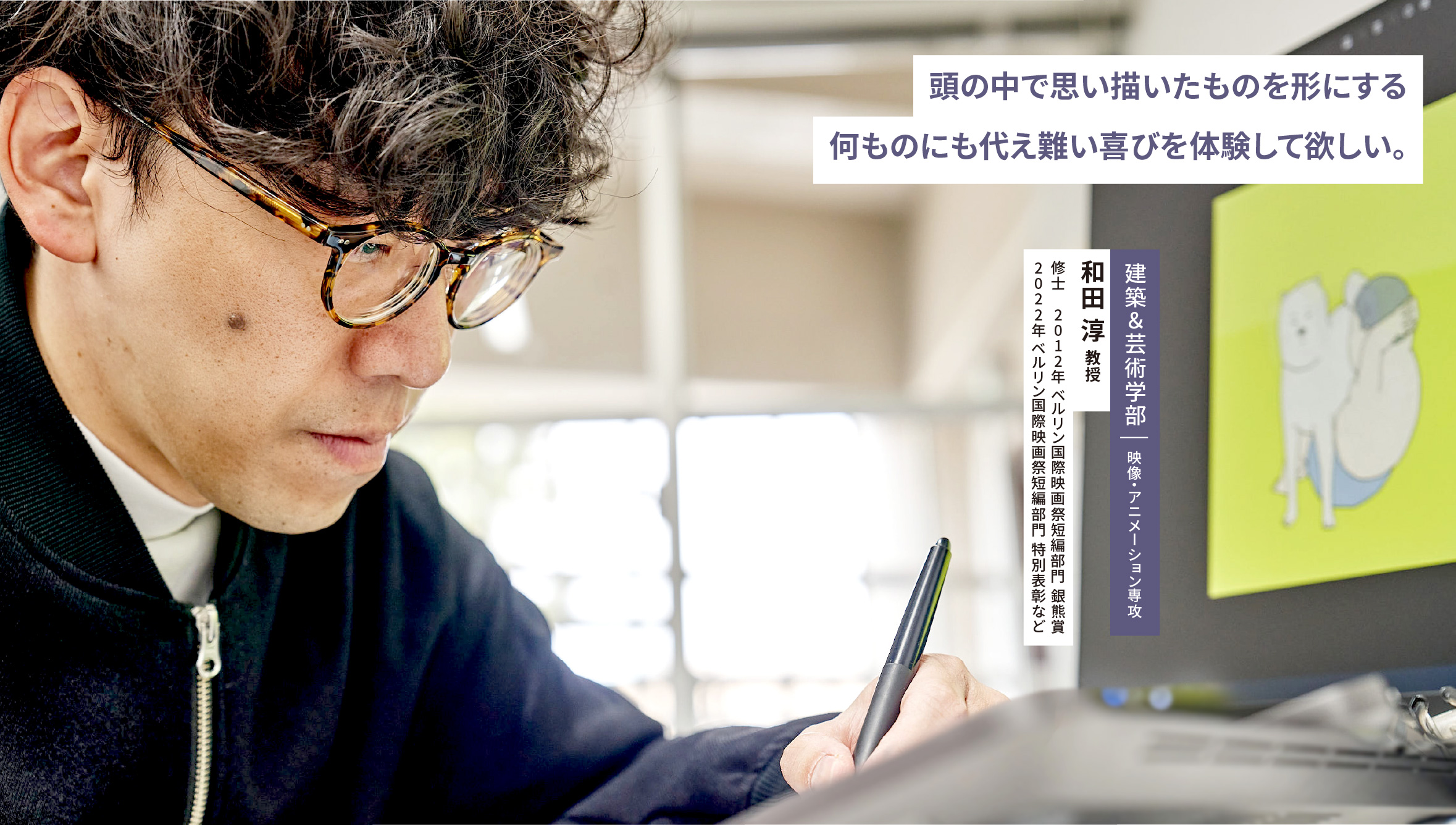

Although I have won awards overseas, I don't create my works with the world in mind. However, I want many people to see and appreciate the work that I have spent so much time and effort creating. For example, even if you submit to a domestic film festival or competition and are rejected, the same work may be appreciated overseas, so I think it is important to be persistent and spread your work in many directions. Video production is a time-consuming and arduous task, but the joy of giving shape to what you have imagined in your head and the pleasure of having people enjoy your work surpasses the difficulty. I aim to create a curriculum that allows students to experience that emotion as well. The twists and turns and trial and error that come along with creating a work as a graduation thesis or film will help you grow.
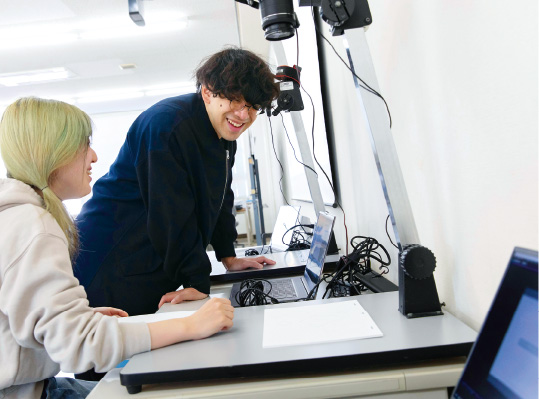
- PROFILE
- He studied film at Osaka Kyoiku University, Image Forum Institute of Visual Arts, and Tokyo University of the Arts Graduate School. His films are based on the themes of "space" and "pleasant movement," and have won numerous awards at film festivals both in Japan and abroad. His representative works include "The Pig Who Doesn't Understand," "The Great Rabbit," and "Peninsula Birds."Professor Wada's website can be found here
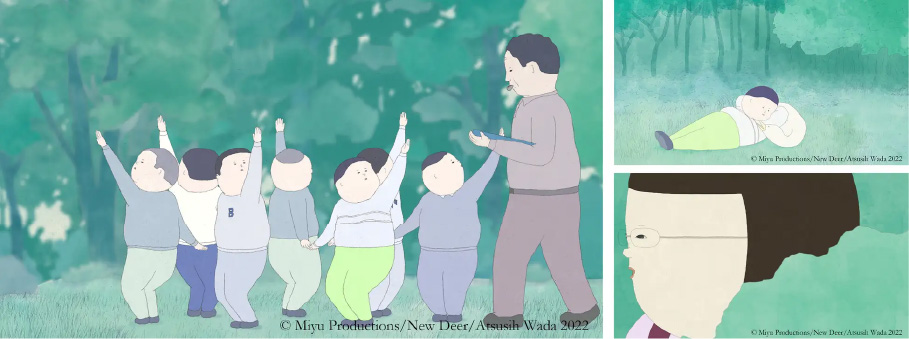
46th Ottawa International Animation Film Festival, Grand Prize in the Short Film Category
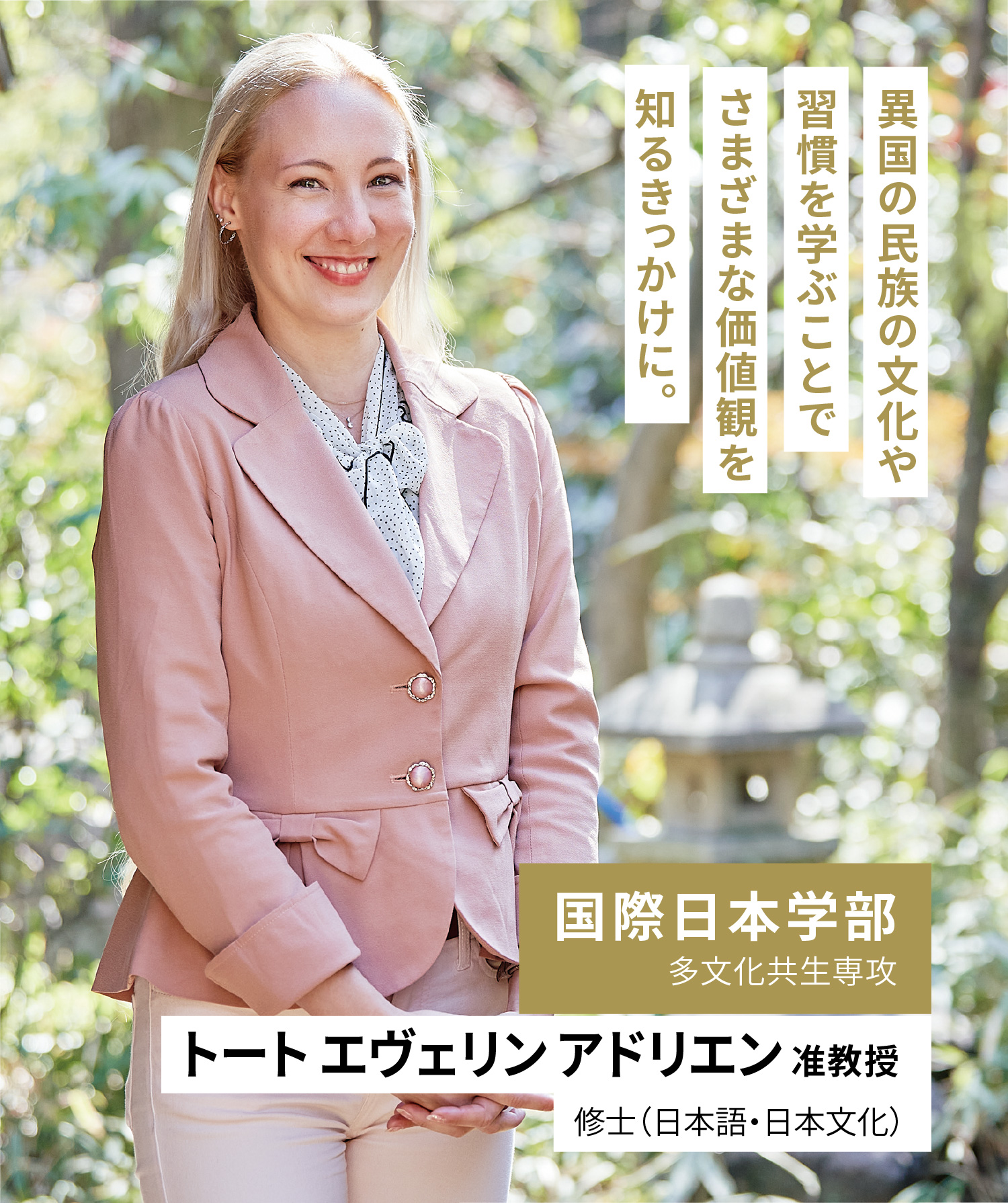

There are many things about the cultures and customs of peoples around the world that seem strange to us in terms of our values. For example, the Ainu people have the custom of Iyomante (bear sending off). We tend to think, "Killing bears is absolutely wrong!", but it is essential to understand why the Ainu killed bears and what the background was. By comparing the culture of a different people with your own background and culture, you can deepen your understanding of cultural diversity, cultural values, and multicultural coexistence. By doing so, you will be able to better understand the thoughts and reasons of your classmates and colleagues who grew up with different cultures and values. I hope that you will understand your own individuality and characteristics and create an environment and society where diverse cultures and ways of thinking are respected.
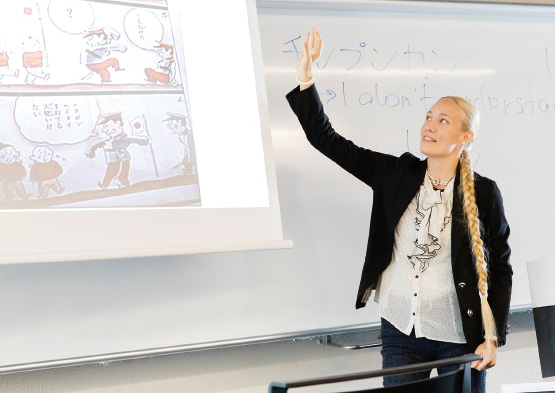
- PROFILE
- Graduated from Osaka University with a major in Japanese language and culture. Researches various fields including the modern and contemporary history and culture of the Ainu people. Wanting to convey to current students the motivation and fun and excitement of learning that he felt as a student, he teaches with the motto of teaching in a bright and fun way, and always taking the feelings of his students into consideration.
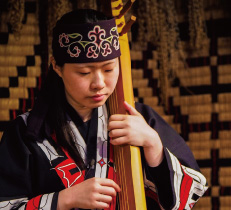
Right: A work depicting the Ainu "Iyomante" (bear sending off) ceremony.
Ainu woman
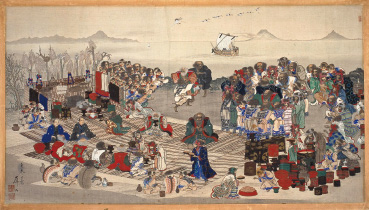


Through my life and activities in Laos, I realized that nursing and medical care are part of society, and I encountered the study of cultural anthropology. Anthropology, which is based on "understanding humans/understanding others," is very attractive, and I feel that it is an academic field that is compatible with nursing and midwifery, which are subjects of humans. "International nursing" is not something that is somewhere far away and unrelated to me. Why is "international" attached to nursing at our university? I think that you can find your own answer to the reason and value through various practices with your colleagues. As a nurse and midwife, I will contribute to education, care practice, and research, sometimes collaborating with others. I hope that you will also become passionate and compassionate nurses who can respect diversity and human rights.
- PROFILE
- Midwife. After working as a midwife at a university hospital and a private hospital, she served in Laos as a member of the Japan Overseas Cooperation Volunteers. After returning to Japan, she majored in cultural anthropology at graduate school. She conducted fieldwork on reproduction in various parts of Asia, including villages on the Laotian border. She worked at Kobe City University of Nursing before assuming her current position.
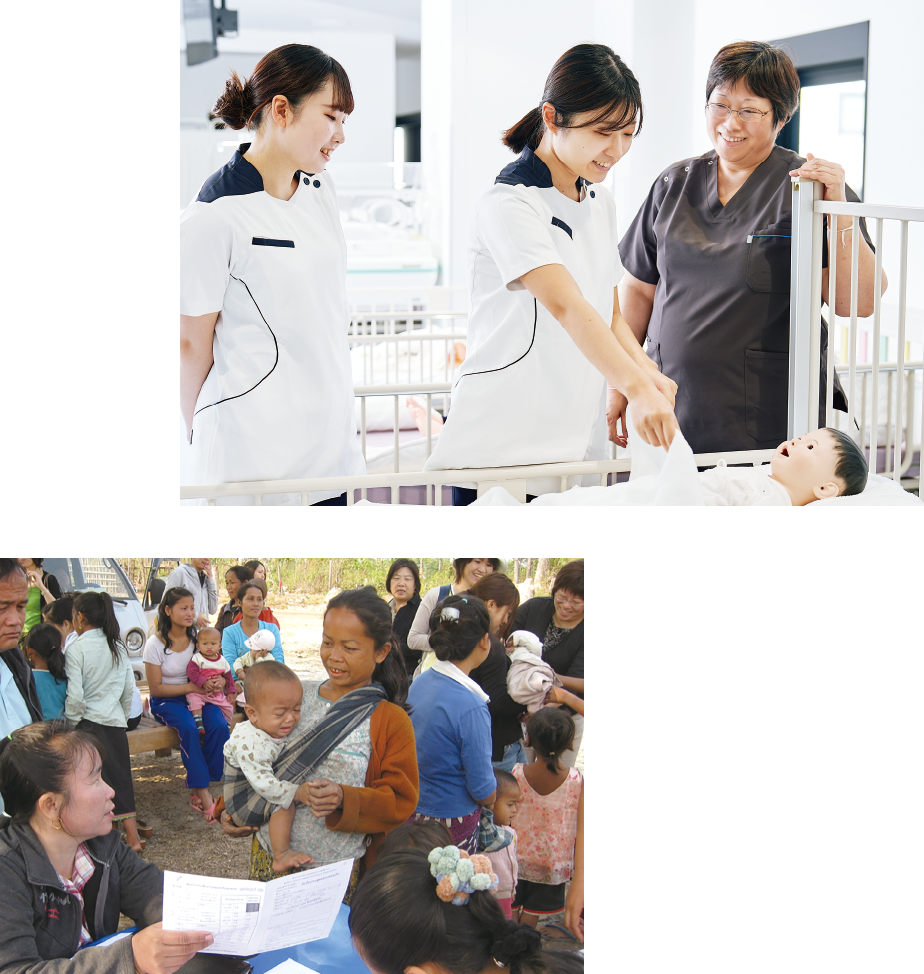
- PROFILE
- Midwife. After working as a midwife at a university hospital and a private hospital, she served in Laos as a member of the Japan Overseas Cooperation Volunteers. After returning to Japan, she majored in cultural anthropology at graduate school. She conducted fieldwork on reproduction in various parts of Asia, including villages on the Laotian border. She worked at Kobe City University of Nursing before assuming her current position.

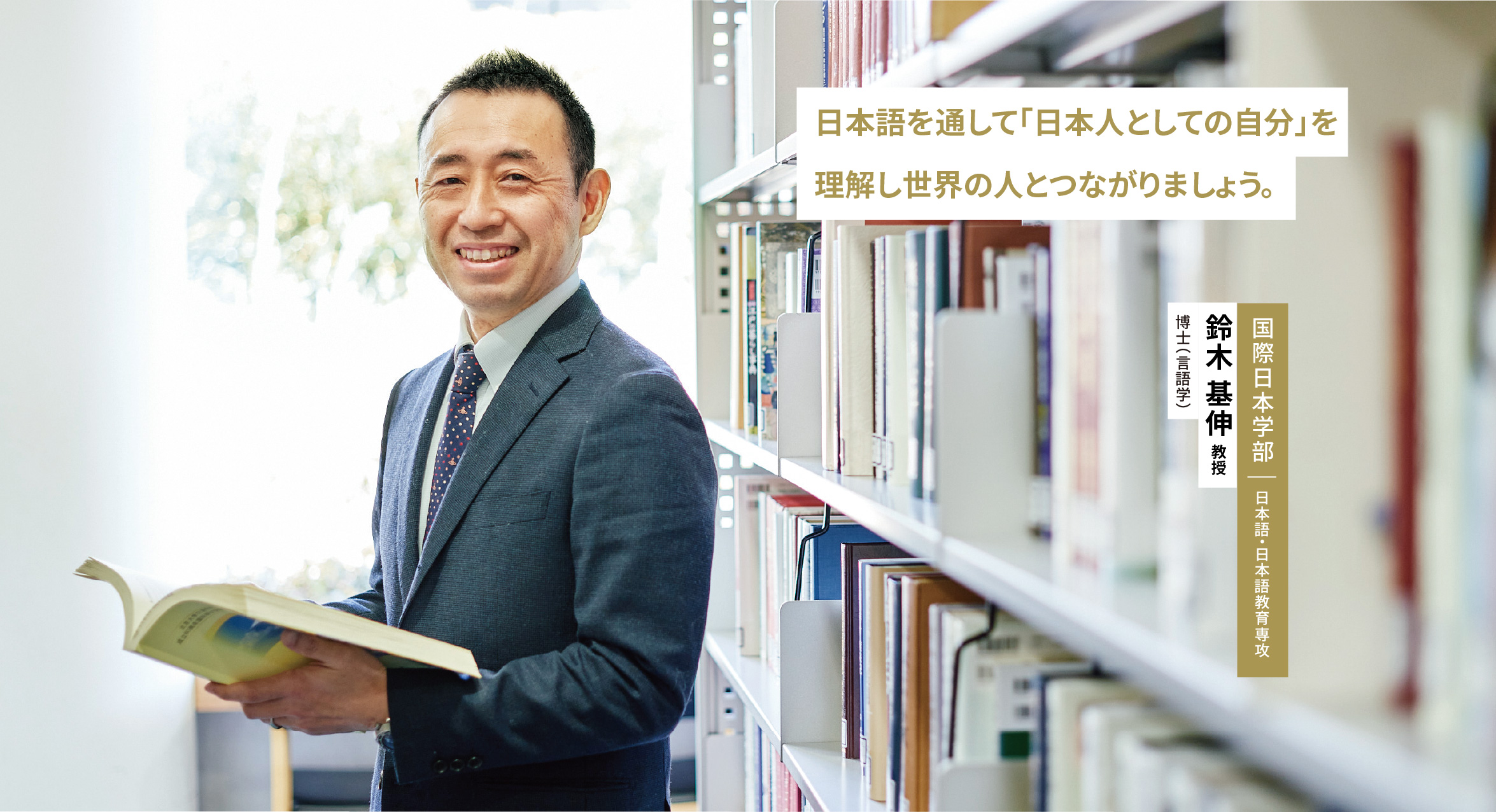

There is a theory called linguistic relativity that says that language influences thinking. Based on this theory, the Japanese language shapes your thoughts, concepts, and ways of thinking. By understanding the language, which can be said to be the foundation of thinking, you can understand what it means to be "Japanese." In addition, by teaching Japanese, you will be able to interact with people overseas. The pre-university offers online internships with Thailand and Hawaii, and if you are motivated, you can participate even in your first year. Being able to speak Japanese is a weapon. Overseas, the ratio of Japanese learners to Japanese teachers is 60:1, and there is a chronic shortage of Japanese teachers. Use your Japanese language as a weapon to be active globally.
- PROFILE
- Graduated from Nagoya University. Studied Japanese-English contrastive studies as an undergraduate and modern Japanese grammar as a graduate student. While in graduate school, he began working part-time as a Japanese language teacher, which prompted him to also research Japanese language education. He is currently conducting research aimed at elucidating the mechanisms involved in the process of Japanese language acquisition by international students. His published work is "How to Start Nihongo Kyoiku (Japanese Language Education)."
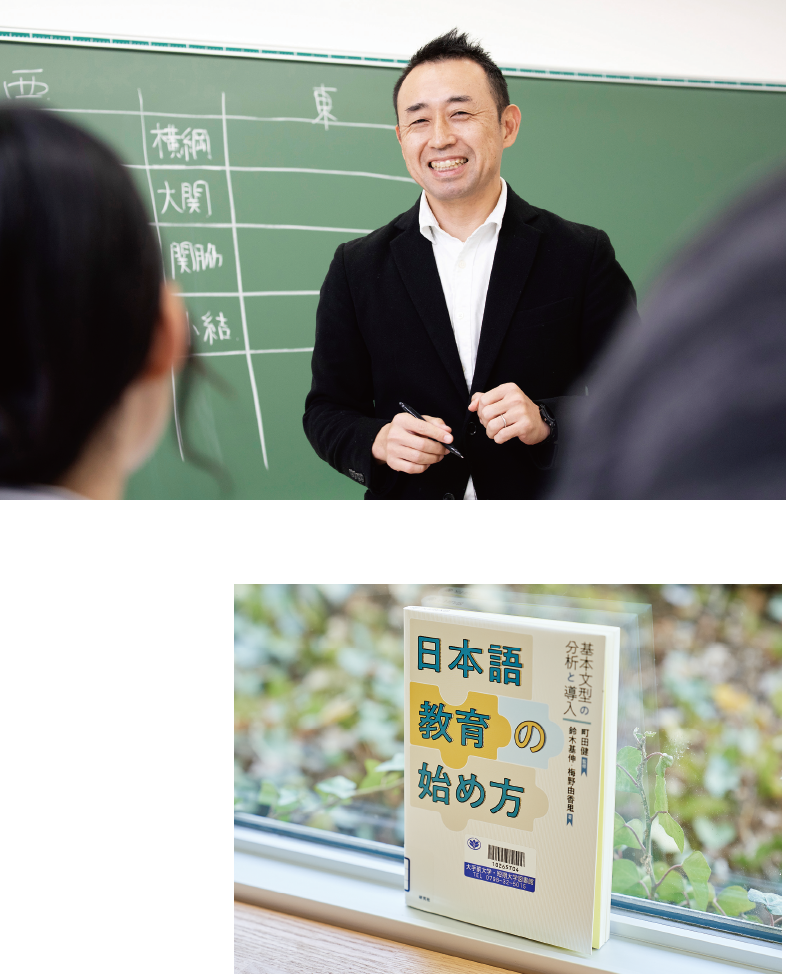
- PROFILE
- Graduated from Nagoya University. Studied Japanese-English contrastive studies as an undergraduate and modern Japanese grammar as a graduate student. While in graduate school, he began working part-time as a Japanese language teacher, which prompted him to also research Japanese language education. He is currently conducting research aimed at elucidating the mechanisms involved in the process of Japanese language acquisition by international students. His published work is "How to Start Nihongo Kyoiku (Japanese Language Education)."
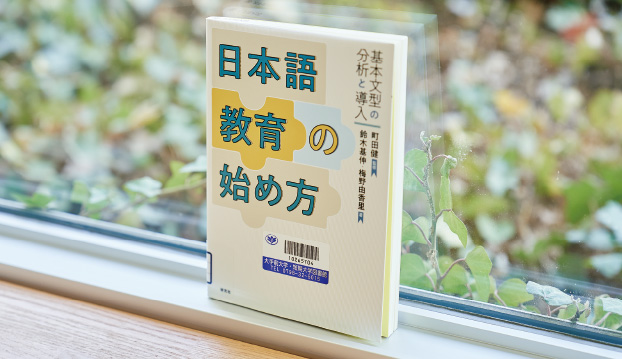
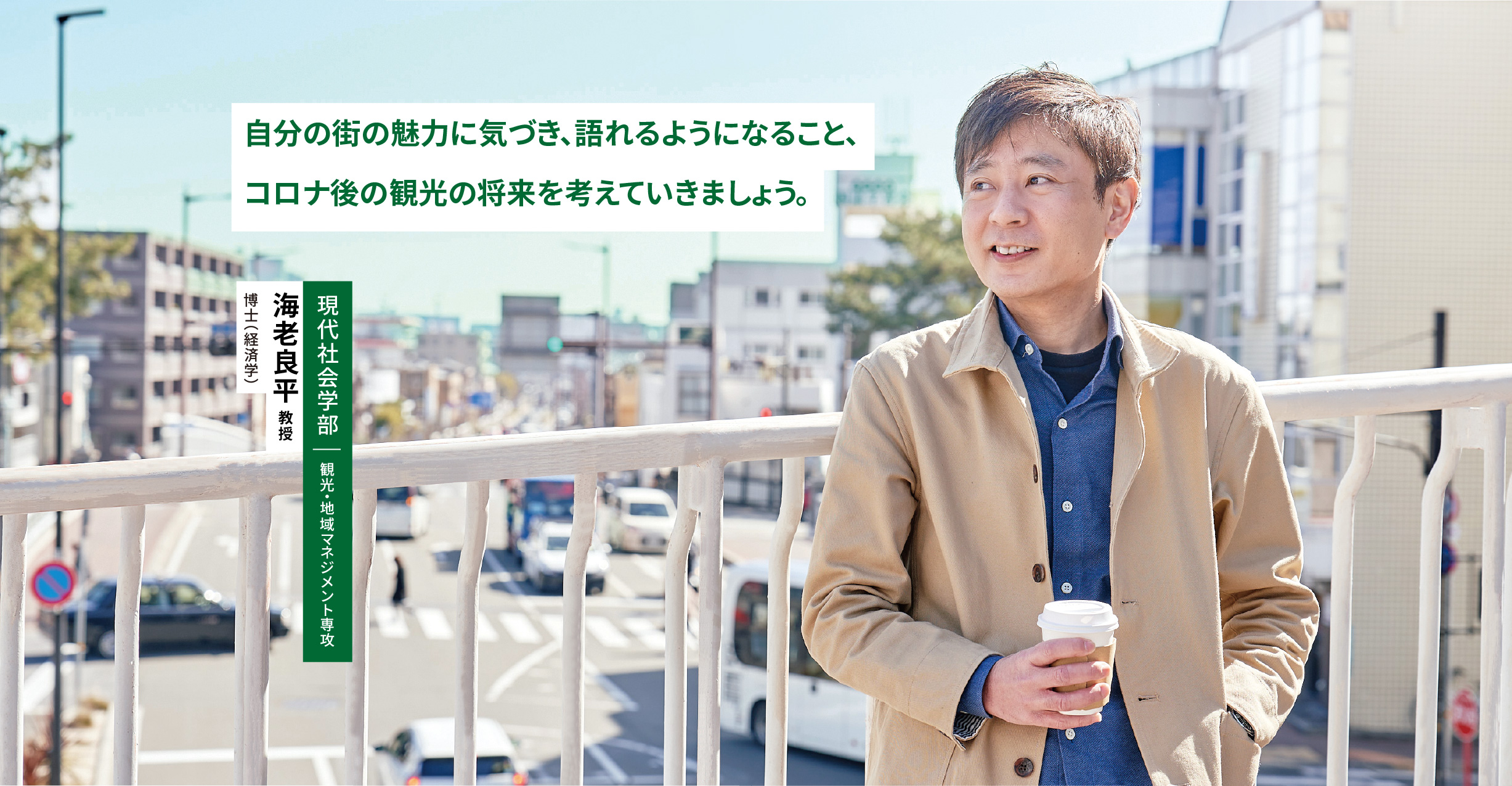

Today, we are in an era where we invite foreigners from overseas to Japan, rather than going overseas from Japan. In addition to technological capabilities in manufacturing things such as automobiles, the world is also paying attention to cultural power such as anime and Japanese cuisine. Whether it is tourism or export of goods, when considering Japan's strengths in the global market, knowledge about the region and the ability to convey its charm are necessary. How much do you know about your town? In the subject of Regional Tourism Exercise, students collaborate with history and Architecture teachers, prefectural and city hall officials, and companies in the prefecture to learn about the region and think about how to create a lively town through tourism. Getting to know our town is the start of thinking about global tourism, and also leads to the university's spirit of "STUDY FOR LIFE".
- PROFILE
- Doctor of Economics. Specializes in tourism. After graduating from university, he worked for a newspaper company before going on to graduate school, where he studied the economic theory of consumption. After completing graduate school, he expanded his research to tourism, and his current themes are the history of modern leisure and regional studies of the Hanshin area. He is mainly researching the development of amusement parks and the history of entertainment businesses in the Osaka-Hanshin area from the Meiji period to prewar. He joined Otemae University in 2020. Chief Tourism and Regional Management major.
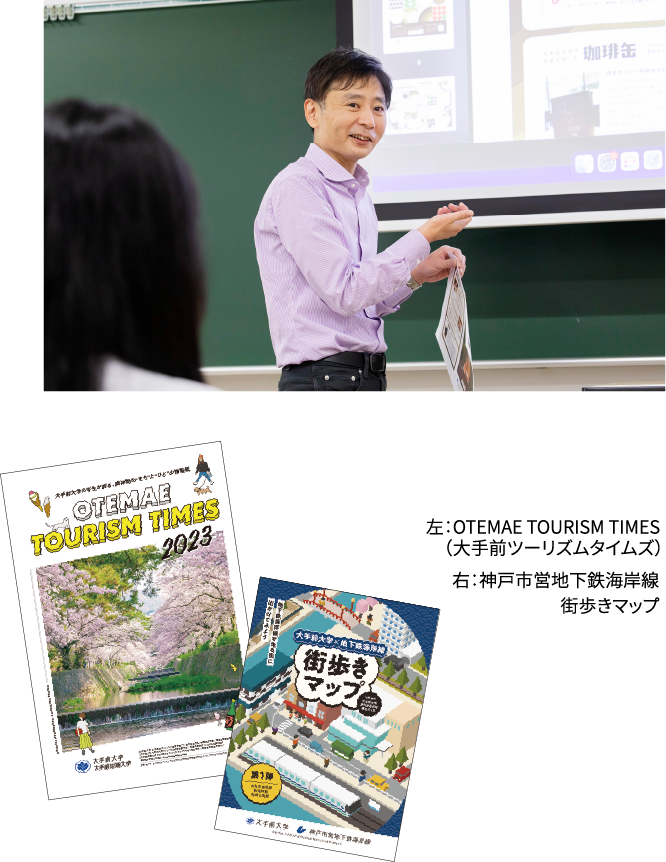
- PROFILE
- Doctor of Economics. Specializes in tourism. After graduating from university, he worked for a newspaper company before going on to graduate school, where he studied the economic theory of consumption. After completing graduate school, he expanded his research to tourism, and his current themes are the history of modern leisure and regional studies of the Hanshin area. He is mainly researching the development of amusement parks and the history of entertainment businesses in the Osaka-Hanshin area from the Meiji period to prewar. He joined Otemae University in 2020. Chief Tourism and Regional Management major.

